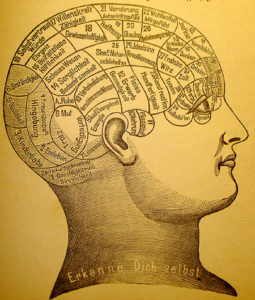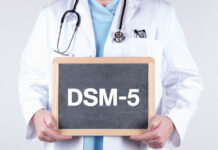A “not otherwise specified” (NOS) diagnosis is often used when an individual may have some symptoms related to a psychiatric diagnosis but does not meet enough criteria to warrant a full diagnosis. A new study, published online ahead of print in Psychiatric Services, reveals that the proportion of mental health visits resulting in such NOS diagnoses rose to nearly fifty percent, and that these diagnoses do not result in more conservative psychiatric drug prescriptions.
 “The increase raises concerns about the precision of psychiatric diagnoses in community care and about the impact on concomitant medication regimens,” the study authors conclude.
“The increase raises concerns about the precision of psychiatric diagnoses in community care and about the impact on concomitant medication regimens,” the study authors conclude.
Using data from a national sample of US physician office visits, researchers examined the trends in NOS diagnoses using the DSM-IV from 1999 to 2010. They also investigated the trends in the prescription of psychotropic drugs based on these diagnoses.
The DSM-IV was the predominant diagnostic system used during this period, and NOS diagnoses were typically used when the number of psychiatric systems reported do not meet the criteria for a full diagnosis. In the newest edition of the diagnostic manual, DSM-V, NOS has been reclassified into “unspecified” and “other specified” diagnoses.
The major finding of this study is that the percentage of NOS psychiatric diagnoses increased from 41.8% to 49.5% from 1999-2000 to 2007-2010. A majority of these NOS diagnoses were made by nonpsychiatrists (57%-61%) over this same period.
“Psychotropic medication prescribing in 2007–2010 by primary care practitioners was more than three times greater than prescribing by psychiatrists.”
Additionally, “increases in prescribed psychotropic medication classes (particularly antipsychotics, lithium, and anticonvulsants-mood stabilizers) were greater over the 12-year study period for NOS visits than for full-criteria visits.”
The researchers point out that while there has been little research on the reliability of NOS diagnoses, the field trials for the DSM-V revealed that there was very low statistical agreement for subthreshold diagnoses. Despite this fact, that such diagnoses are inconsistent and unreliable, “NOS diagnoses are currently associated with similar proportions of prescribed psychotropic medication for NOS diagnoses as for full-criteria psychiatric diagnoses.”
“In research studies, there is no substantive evidence that psychotropic medications (mainly based on studies with antidepressants) are effective for NOS psychiatric disorders.”
The percentage of NOS diagnoses is expected to continue to rise, according the authors, as research has found that 53% of adolescents and young adults could meet the criteria for a subthreshold DSM disorder. They cite Joel Paris, who comments that “admitting subclinical phenomena into a classification system is a very slippery slope. The lifetime prevalence of mental disorders could easily come to approach 100%.”
The researchers conclude: “The steady increase in psychiatric NOS/ unspecified diagnoses could be a wake-up call for those contemplating further DSM-5 diagnostic improvements, and the increase may lead to change.”
*
Rajakannan, T., Safer, D. J., Burcu, M., & Zito, J. M. National Trends in Psychiatric Not Otherwise Specified (NOS) Diagnosis and Medication Use Among Adults in Outpatient Treatment. Psychiatric Services, 0(0), appi.ps.201500045. doi:doi:10.1176/appi.ps.201500045 (Abstract)















“admitting subclinical phenomena into a classification system is a very slippery slope. The lifetime prevalence of mental disorders could easily come to approach 100%.”
Exactly. That’s the plan, isn’t it?
—- Steve
Report comment
Rather than, “admitting subclinical phenomena into a classification system is a very slippery slope. The lifetime prevalence of mental disorders could easily come to approach 100%.”
How about, “having a diagnostic system for non-medical problems is an unscientific fraud.”
Report comment
By Jove they’ve done it! A psychiatric diagnosis to cover the remaining percentage of the population not diagnosed already. Now all that remains is to find a way to turn NOS into an SMI and we can all be forcibly drugged for breakfast– as soon as they work out the kinks in Murphy.
Report comment
Oh, but they accomplished this at least with the DSM-IV-TR. I was diagnosed with “bipolar NOS,” and “bipolar” is definately a SMI. The “bipolar” symptoms I had we’re donating $400 to a children’s charity (“spends too much”), according to the doctor, but not my bank account. And I was justifiably irritated with grown adults who abused my children, then decided to bully me (“irritated”).
Although, I was also suffering from the common symptoms of antidepressant discontinuation syndrome, resulting from abruptly being taken off of a “safe smoking cessation med.” And the known mind altering effects of a “safe pain killer,” actual dangerous synthetic opioid, given due to “bad fix” surgery. Real life mind altering medication induced symptoms, which according to the DSM-IV-TR, specifically preclude a “bipolar” diagnosis.
Absolutely everyone already can have a SMI, according to today’s psychiatric industry. Drug the world!!! We are psychiatry!!! 100% is the plan, as Steve states.
Who’s insane?
Report comment
“A “not otherwise specified” (NOS) diagnosis is often used when an individual may have some symptoms related to a psychiatric diagnosis but does not meet enough criteria to warrant a full diagnosis.”
So, is it possible for someone to be diagnosed with cancer NOS, or a brain tumor NOS, or death NOS? Either you have something or you don’t. Giving a ‘not otherwise specified’ diagnosis for someone that has some but enough symptoms for a diagnosis is insanity. Well, the whole diagnostic system that diagnoses based on symptoms (which are frequently personality traits, behaviours, or emotions) and not any actual biological pathology is insane.
Biological psychiatry is a fraud. It’s a pseudoscience. It should be abolished. This insanity must stop.
Report comment
Blood pressure and diabetes are kind of dealt with in that manner as you can have pre hypertension and pre diabetes. I am sure there are other conditions but none come to mind right now.
But at least the diagnoses are still based on legitimate testing vs. what psychiatry usually comes up. So your points are well taken.
Report comment
The diagnosis are also based on information that is obtainable (through biological testing) and will remain consistent from provider to provider across the board. Nothing in psychiatry can provide and type of dependable diagnosis. 5 psychiatric providers will likely give 5 different diagnosis depending on the “drug of the month” they are being paid to promote.
And, even medicine is fallible. The idea that we can manipulate our cholesterol levels by what we eat was recently refuted (and has been doubted for decades). Now that will they do with all those statins? Treat “mental illness” I suspect.
Report comment
That’s what psychiatry routinely does to imply legitimacy — using terminology associated with real medicine to rationalize something completely different.
Report comment
In many ways psychiatry figures they can make full bore pseudo science fly even higher because “real medicine” (AMA) itself is so full of it itself, (vaccinations, cancer treatment , and heart related treatments as first class examples ) setting the precedent of hiding what it doesn’t know behind terminologies and taking the position that to question them is already a sign of “mental illness”. Of course psychiatry is pseudo scientific selection system that threatens everybody . Ask not what psychiatry can do for you ask what you can do to abolish psychiatry. And beware big brother -big pharma hovering over everything .
Report comment
More proof that there is no recovery and once given any DSM label you will never escape the realm that mainstream mental health calls it’s own (predominantly controlled by the drug companies, the insurance industry and every non-descript “provider” employed to promote the teachings of psychiatry’s “medical model” even when untrue). It’s just incredibly disturbing when you consider the depth and breadth of the situation and understand how far the lies reach.
Report comment
I feel a bit bad because I reread this article and the comments again and it made me start laughing out loud, as occasionally happens with this articles. I was just wondering what goes through a psychiatrist’s head when he has to write “personality disorder NOS”… surely a few of them have vague unconscious thoughts telling them what quacks they really are.
It’s perversely funny how there’s a “not-otherwise-specified” diagnosis for when a “real” fake diagnosis cannot be found or fabricated. And then you realize that these drugs, which don’t treat any known illness, are being prescribed in association with a “not-otherwise-specified fake diagnosis”. It’s just so ridiculous, sometimes you have to laugh at how seriously it’s presented in these clinical sounding articles.
Sorry. I’m in a weird mood tonight. The sad thing is that real people are harmed by this idiocy of double-fake (NOS) pseudo-diagnoses and fake drugs pretending to treat them.
Report comment